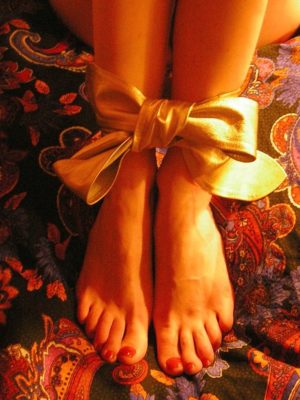You have no items in your cart. Want to get some nice things?
Go shopping
By Christy Alexander Hallberg
For this installment of A Flash of Inspiration, we’re featuring “Bad Qi,” a story that originally ran in Litro on August 21, 2020. Author Lucy Zhang employs lyrical language and an amalgam of folklore and realism to create a mood that is both familiar and esoteric. I was intrigued by the depiction of the main character as a juxtaposition of the corporeal and metaphysical, as though the two states of being were at war for possession of her. The result is a story that is allegorical and shocking.

CAH: How long have you been writing flash fiction? Do you write in other genres? Do you find that you return to certain themes in your writing repeatedly?
LZ: I have been writing flash fiction for about two years now. I’ve also dabbled in short fiction, poetry, creative nonfiction, hybrids, and multimedia pieces that incorporate code and writing. I love that flash packs such a punch, how it exists between genres, how it’s so open to breaking rules (as we writers so often like to do). A lot of my writing revolves around hunger (of all forms), the body, a lack of belonging.
CAH: What inspired the subject matter of “Bad Qi”? Does the story have any autobiographical elements?
LZ: I’ll admit “Bad Qi” started because of my husband’s foot fetish. I don’t think feet are all that great (besides getting me from point A to point B), but I was interested in his interest and ran with it. On a broader level, I wanted to explore the character relationships and how objectification can be interiorized — how after a certain point, the object that others see as representative of you can become you.
CAH: You use a lot of medical jargon related to the anatomy of the foot in the piece. What kind of research did you conduct to prepare to write that aspect of the story?
LZ: I love doing research for my writing. It’s honestly just another excuse for me to go down the rabbit hole of Wikipedia and research articles in a completely different knowledge sphere. I didn’t do any research beforehand. Rather, as I wrote, I looked up things about anatomy, which ended up informing what I wrote. That happens for a lot of my work: I’ll read about something and feel inspired, write a bit, continue reading about the thing, continue writing.
CAH: Eastern folklore, myth, and religion play a large role in “Bad Qi.” For example, you allude to the ancient Chinese custom of foot binding. What interests you about these cultural references and what do they reveal about the nature of these characters and their relationship in the story?
LZ: I grew up with a lot of these Chinese tales about vengeful ghosts or fox women, and I was always fascinated by how the “evil” women were always beautiful. A lot of those beauty standards (pale skin, small face, small everything) in Chinese culture have always seemed to make the women disappear rather than stand out. In “Bad Qi,” the main character is disappearing both spiritually and physically.
CAH: Where do you turn for creative inspiration? Which artists have most inspired your own work? What books are on your nightstand?
LZ: Anime is a huge influence on my writing. Sometimes when I don’t have any story ideas, I’ll go through the shows I’ve watched on MyAnimeList and try to write something inspired by one of them. There are pretty much no books on my nightstand! Haha, I’m truly a soul of the 21st century. I prefer to read everything on a device, and even then, it has been a long time since I’ve actually read a novel. I prefer to read short fiction, manga, webtoons, etc.
CAH: What are you working on now?
LZ: I’ve been branching out of flash fiction more this year with multimedia pieces, poetry, and short fiction. Emphasis on short fiction. I’ll often get impatient by the 2k word mark and the ending suffers for it. But there’s no way but forward! And I’ve already cranked out my first story over 3k words!




